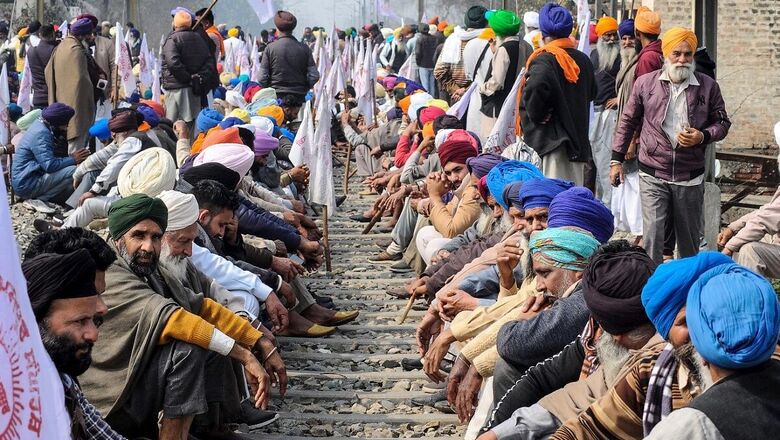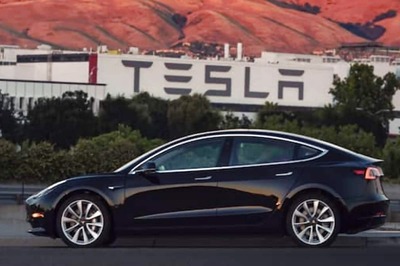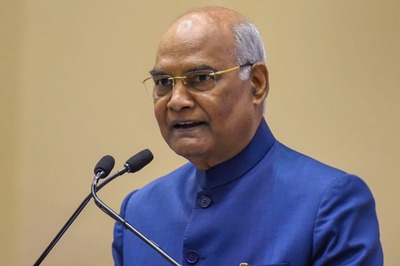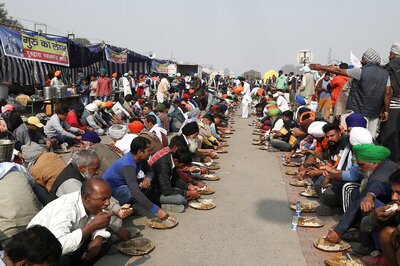
views
It is becoming difficult not to question the intentions behind the so-called farmer protests. In the last few days, the second wave of Covid in India has only just begun to lose strength. Yet, daily new cases are still close to two lakh, which is twice as much as the peak of the first wave. The number of deaths is still above three thousand a day. We have lost fathers, mothers, sons and daughters, parents of young children. We have already lost so much and still we have so much to lose. The economy is still not open. We don’t know how many jobs and livelihoods have been lost.
And then we have self-styled “farmer leaders” who are adamant on holding more mass protests? That is extraordinarily selfish and cruel. We have just seen how deadly the second wave was and how quickly the virus can come back. Do we not all realise what is at stake here? How could anyone play around with causing a third wave?
When these protests began, they were billed as a grassroots movement against the power of the state. Even though there were never more than a few thousand people at these gatherings, mostly from Punjab and a handful from Haryana, they enjoyed enormous moral authority. The media got involved at an emotional level and civil society pitched in with protest songs, music and literature. Across India, there are over sixty crore people who depend on agriculture. There is no way the protesters could have represented a majority of them or even a significant percentage of them. But the imagery of the humble farmer taking on the might of the Indian state led to the sympathetic manner in which these protests were framed.
But how can something be a grassroots movement when its leaders routinely get away with things that no common citizen would? Most of the country is under strict lockdown. Common citizens are getting beaten, kicked, humiliated for violations such as not wearing a mask, or if they are outside trying to find essentials. While not official policy, this is how the administration everywhere is used to treating people who have no power. Our citizens are getting booked for having too many guests at a wedding or too many people mourning at a funeral. But the farmer unions get to go ahead with mass protests?
Six months down the line, these protests represent the worst of VIP culture: entitled, selfish, thoughtless and with no regard for common people. For a while, their blockading of roads made it difficult for trucks carrying oxygen to enter Delhi at the peak of the second wave. Even the circumstances surrounding a horrific sexual assault near the Tikri border failed to undercut their power. How is this different from the infamous Jungle Raj in Bihar of the 1990s?
In retrospect, the signs of this were everywhere. The unions were allowed to get away with rampant destruction of property and infrastructure such as cellphone towers. Riding big wheels on January 26, they were allowed to chase Delhi Police personnel into a ditch, causing grievous injuries. They were allowed to sack the Red Fort and plant a flag of their own. At another time, they even attacked a Jan Aushadhi Kendra which provides cheap medicines to the poor. It is obvious that these protesters never lacked funding nor political support. The Canadian Prime Minister spoke in their favour, interfering directly in our internal affairs. The British Parliament discussed their matter. Their sympathisers took out full-page ads in the New York Times. Incidentally, another group of sympathisers blew up railway tracks near Chaibasa in Jharkhand for a bandh on April 26, to mark five months of these protests. At the time, goods trains were supposed to be on these tracks, rushing life-saving oxygen to parts of the country worst-hit by the second wave.
In Punjab, which is the epicentre of these protests, the case fatality ratio for coronavirus is a grim 2.5 per cent, by far the highest in the country. But much more than that, consider what these protests did to the mentality of the public. For four straight months, they occupied our minds. They took focus away from the fact that the virus was still out there. Their gatherings inundated our TV screens, their so-called mahapanchayats grabbed all our attention. What was the underlying message that everyday people, those not directly related to the protests, took away from this? That the pandemic is over and the country has moved on to other things. They dropped their precautions. Half of Covid preparedness is a matter of public awareness. Unless we all take precautions, no health system in the world can prepare for the kind of tidal wave that comes with the exponential spread of the virus.
Shall we allow them to distract us again? Shall we allow a group of entitled, self-styled leaders to enforce mob rule? While discussions may continue, repealing these laws right now would set a terrible precedent. We obviously cannot afford all the lives that would be lost in a third wave and so we give in to their demands? That is called paying a ransom. Tomorrow, anyone with a crowd of supporters can get anything by threatening public safety.
About the motivations of the twelve opposition parties who have backed in writing the continuation of these protests, the lesser said the better. Writing letters to the Prime Minister did not make the second wave any better. If these protests lead to a third wave, the Prime Minister is likely to receive more letters. But I am guessing the letters won’t make the third wave any easier.
This should be an easy choice. Remember the cries for help on social media, for beds, oxygen, remdesivir and the lines at the crematoriums? That was less than a month ago. Today we want to move on and pamper the egos of a bunch of union leaders who are protesting some law that doesn’t even come into effect for at least another year? No way. This time we cannot afford to let them mess with our heads. Our lives depend on realising this, very literally.
(Abhishek Banerjee is a mathematician, columnist and author. Views expressed are personal.)
Read all the Latest News, Breaking News and Coronavirus News here. Follow us on Facebook, Twitter and Telegram.




















Comments
0 comment